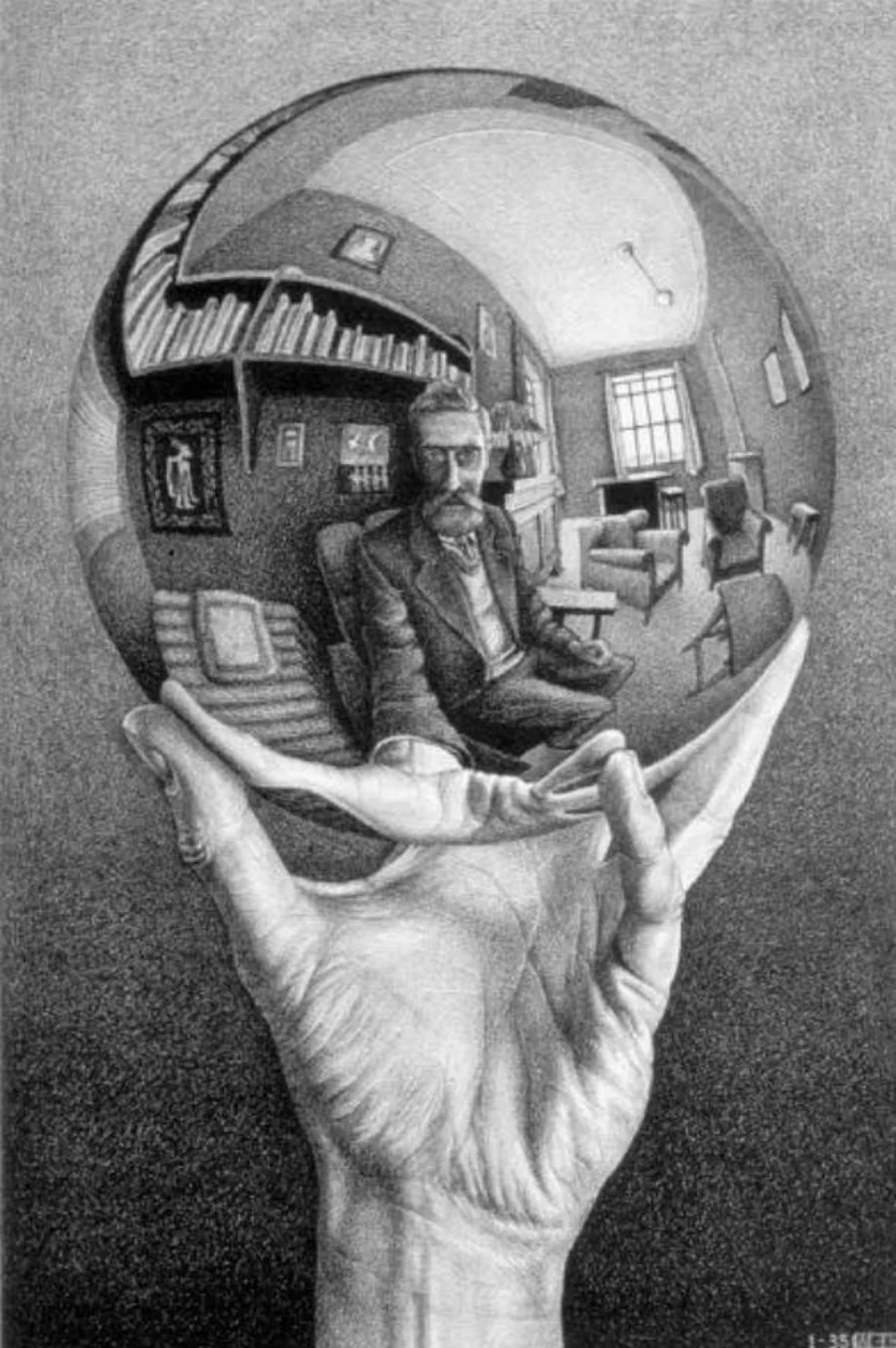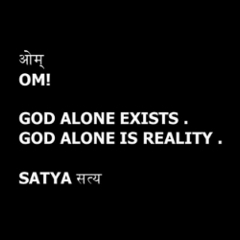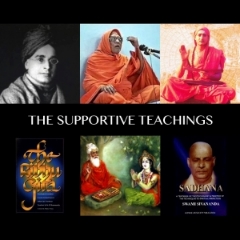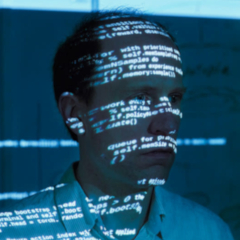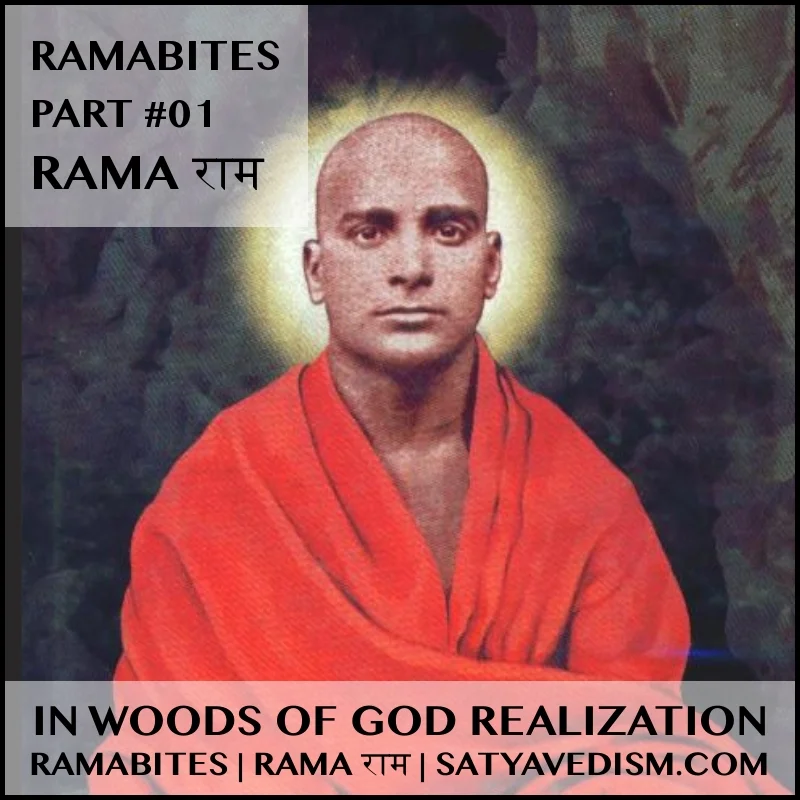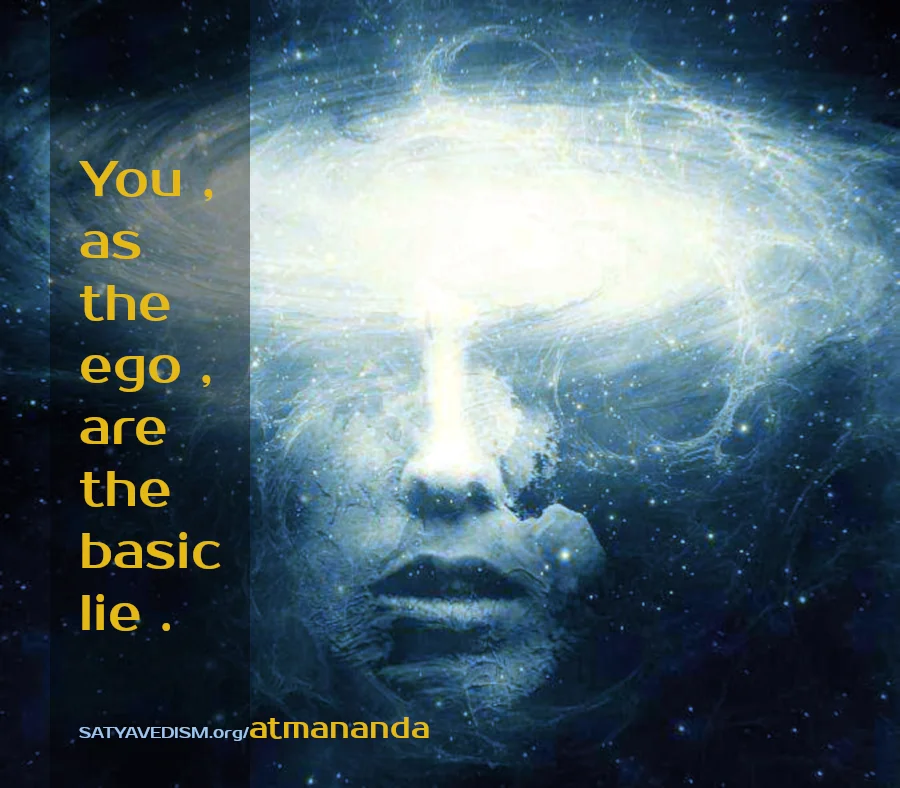IDEALISM & REALISM RECONCILED | IRR
| | homePHILOSOPHY | IDEALISM & REALISM RECONCILED | IWGR III | RAMA राम
|| VEDANTIC THEORY OF PERCEPTION ||
The Only Real & Ideal One in the Form of People ,
The subject of tonight's discourse is very abstruse , very difficult . Only those will be able to follow it thoroughly who are already somewhat acquainted with Philosophy . To Rama it makes no difference whether all of you go away fatigued and disgusted , or the whole world comes to listen .
Truth stands above all desire for popularity .
Scientific laws were governing the world , and are governing the world , and will continue governing the whole Universe , whether people know them or not , whether they become popular or not .
The Law of Gravitation was the same even before it was discovered by Isaac Newton . There are laws which people may not have discovered and yet they are governing the world . A magnificent diamond may be lying in a mine and yet nobody may find it : the diamond shines in its own glory all the same . Let people pick it up and place it on their foreheads , or let people ignore it entirely , to the diamond it makes no difference .
The subject is difficult ; but if you follow it very closely , you will understand it . You need not say what is the use of speaking upon such abstruse , speculative , philosophical subjects ? We require them not ; we want hard cash ; we want something practical . Rama has been speaking on practical subjects , but theoretical and speculative subjects are also necessary .
No fact can be explained without a sound theory to support it ; and you know all your practice is simply your energy transformed into activity , nothing else . When you have to write anything , before your pen begins to move , the whole subject must come into your mind in theory ; theory always precedes activity . When you have to go to any place , your walking is a matter of practice , but no step could be taken without there being mind to govern your muscles and movements .
No student goes to a College without having an idea of the University beforehand in the mind , without being possessed of the knowledge of what kind of training one is to receive there . When a thief hears constantly about the wealth and riches of a particular neighbour , the thief transforms into activity the continuous information which is received , the continuous thought that there is , and plucks courage to break into the house of the rich neighbour .
No action can be performed without some kind of mental activity , some kind of knowledge concerning the act to be performed beforehand .
So Rama is trying to drum into your ears and instil into the hearts of all the audience the divinity of yourselves . Let it sink deep into your hearts day by day ; let it penetrate your minds hour after hour , and you will see according to the Laws of Science this mental energy which appears to be vain speculation , transforming itself into the most noble activity on your part , and this knowledge you will see transforming itself into happiness and bliss for you .
The subject is " Idealism and Realism Reconciled in the Light of the Vedanta " . In other words , the subject is — The Vedantic Theory of Perception , — a most important subject for philosophers .
You ought to be told a little about what Idealism and Realism are . We have no time to enter into the details of these topics . In brief , Realism means a belief or theory which looks upon this world as it seems to us to be , a mere phenomenon ; while to Idealism the world is not as it appears to us ; the world is , but it is not what it appears and according to Realism things are just as they seem to us , real in themselves .
Idealism has several branches . We have Subjective Idealism , the idealism of Berkeley and Fichte ; we have Objective Idealism , the idealism of Plato and Kant ; we have Absolute Idealism , the idealism of Hegel and Shelley < : Schelling : > , and many others of the same type .
Realism has many philosophers like Bain and Mill to support it . We shall not describe these several branches of Idealism or Realism . We shall not criticise in tonight's discourse the Subjective Idealism of Berkeley or the Objective Idealism of Plato and Kant , or the Absolute Idealism of Hegel or Shelley < : Schelling : > . We shall just allude to these to such an extent that the Vedantic theory about this matter may be easily comprehended by each and all .
Before beginning with the subject two words ought to be explained , the words " subject " and " object " . You know these words — " subject " and ' object " , — are taken in different senses .
In Grammar they are used in one sense , in ordinary language they are used in a different sense , and in philosophical language they have a meaning of their own . The word " subject " in the language of Philosophy means the knowing one , and the " object " means the thing known . When you see this pencil , the pencil is the object , and you that perceive the pencil are the subject : the perceiving one is called the subject , and the thing perceived the object .
Thus in ordinary language , the word subject means the understanding or the intellect ; but , according to the Vedanta , this subject , understanding , intellect , or reason should not be called subject ; this also is an object . You know anything that can be perceived becomes an object , and you can perceive the intellect , you can think and reason about it and lay down its laws ; in so far as you ran reason about it and conceive it , in so far is the intellect an " object " and not a " subject " .
The real subject cannot be conceived ; the real subject cannot be perceived . How can the knower be known ? You know the real subject should either be the knower or the known ; the very moment it becomes the known , it becomes an object , it no longer remains the subject . But in ordinary language the word subject implies the understanding , intellect , or reason .
The real subject or the real knower is , according to the Vedanta , the true Atma , the only Infinity , one and the — same in all bodies . It would be useful to remember a Sanskrit word also in connection with this . The word " subject " is called in Sanskrit Drashta , the word " object " is called in Sanskrit Drishya , and the real subject in Sanskrit is the Brahma or Atma .
The word Atma might be translated in English either to be the Will of Schopenhauer or to be the hard Intellect or Absolute Intellect of Hegel . You know Hegel and Schopenhauer are antagonistic to each other , but the Vedanta reconciles them . The Vedanta tells them that the absolute Will of Schopenhauer is in reality the same as that which Hegel calls the Absolute Intellect , and so for this Absolute Self we have the word Brahma which means Absolute Will , Absolute Intellect , Absolute Existence , and Absolute Bliss .
So the real subject is the true Atma , but the practical subject is the Atma as shining in the intellect or in the understanding , so the real Atma with the intellect as an agent is called the subject .
What are the arguments the Realists advance on their side and what are the chief arguments advanced by the Idealists ?
That is a long subject , but we shall discuss it very briefly . We have no time to criticise Berkeley , who is one of the principal idealists . How briskly Berkeley starts in philosophy , and how Berkeley soars high so long as exactly hand in hand with the Vedanta philosophy , and how Berkeley loses the way and falls into a meandering zigzag the very moment departing from it . This is a very interesting subject , a subject which ought to be taken up if Rama gets an opportunity to lecture before the University students or University Professors .
What a contrast the latter part of Berkeley's philosophy forms with the original part of Berkeley's philosophy . How Berkeley is obliged to believe in so many spirits and to bring in a personal GOD to control this universe , and how , according to this philosophy , no object may be present in this world without a spirit beside it , and what absurdities are brought in . Well , that is a subject which we shall not take up tonight .
Amongst the many arguments advanced by the Idealists , the following two or three are important .
The first is : you cannot see or perceive anything without your own activity . It is the subject's activity alone which makes you perceive anything in this world . You are writing something , your mind is intent on the subject , and there passes before you a snake , but you do not perceive it , for you the snake is not a snake , it is not there . Now , the Idealists say if the activity of your mind or the subject activity is wanting , there is no object there .
When you are asleep , the subject is not active , and all the sounds that may be made around are not heard . There are some people whose eyes do not close when they are asleep . Now before their eyes all the objects are present , all the objects are being reflected on their retina , but they see them not . The Idealists say your mind is inactive , the subject is not asserting its activity and you do not see the objects .
Can you see anything in this world without mental activity ? No . Just try to see this table or that wall ; try to hear Rama's words , try to perceive anything without the mind being active . Can you do that ? Can you see anything without thinking , without your mind's thought ? You cannot .
Thus the Idealists say all this world is nothing else but thought , all this world is simply a projection of thought . How do you know that the world exists ? Through your senses . But the senses by themselves cannot perceive . It is only when the mind is connected with the senses that they perceive , in other words the senses do not perceive , the mind perceives through them .
Now the mind or understanding is the subject . You cannot hear anything without mental activity ; you cannot see anything , you cannot do anything , you cannot perceive anything without mental activity .
So the Idealists say , " O people of this world who call it real and look upon these objects as true by themselves , forget not yourselves , be not mistaken . All these objects are created by you , or projected by your thought , in fact you make them . "
This is what the Idealists say , and it appears that Idealists are something like Vedantins . But Rama tells you that all these Idealists , Berkeley , Plato , Hegel , Kant , Fichte , Shelley < : Schelling : > , Schopenhauer , have the principles of the Vedanta , but the Vedantic theory of perception far transcends all this . These people have disputes with each other , they have quibbles and quarrels , but Vedanta philosophy reconciles each and all of them . These people glorify and make much of the self , but the Vedanta does not deify and lionize the subjective self , as most of these philosophers do . We have to take the truth for its own sake .
Another argument advanced by the Idealists is that this world , which people ordinarily take to be real , should not be regarded as such , because the world appears to be as it is through the senses only , and we depend upon the senses in calling the world true in reality as it seems to us . Now the senses are not trustworthy witnesses .
Take the case of the eye , for instance . The eyes of the ant see differently from the eyes of the human ; to the eyes of the elephant things appear to be much bigger than what they appear to the eyes of the human ; to the eyes of the frog things are clear when seen in the water , and in air things are all hazy , dim , covered with a kind of mist . Now whose eyes are to be relied upon , the eyes of humans or the eyes of ants ? If things are to be decided by majority , ants do not stand in a small minority ; they have the majority on their side .
If your eyes be formed upon the microscopic principle , if the lens in the eyes be fixed in a different way to the retina , to you the world will be entirely different . If the retina of the eyes be adjusted on the telescopic principle , all the world is entirely altered .
You may have seen a toy called a " Look and Laugh " , or the ludicrous glass , which consists of two convex lenses . If we look through it , all the objects in this world become ludicrous , ridiculous . A most beautiful face when seen through " Look and Laugh " becomes elongated , so that the chin touches the ground and the head touches the star Saturn . If you look at it in a different way , then the length of the face remains the same , but one ear moves up to East India and the other moves up — to China .
Well , if the eyes be adjusted upon that principle , the world is entirely changed . So is the case with the ears and other organs of sense . If the nerves and muscles be differently adjusted , the whole world is different , the whole world is changed , and you will say that if the nerves and muscles and sense organs are adjusted in this way they must remain in this way . It is not so ; the law of Evolution tells you that they are undergoing a change . Thus the Idealists say that the world is not what it seems , the world , as it appears to us , is false , the world as it seems to us is unreal , illusory , a delusion .
They have many other arguments on their side , but if we enter into details , many nights would be taken up by Idealism alone . We shall now pass on to Realism .
The Realists say , " You are wrong , O Idealists ! You are altogether wrong . If your statement that everything we see is the creation of our own imagination be true , then , O Idealists , please create a horse where the wall is . Let that wall appear to be a horse . O Idealists , if the whole world is simply the result of this small subject's understanding or mind's creation , then turn this handkerchief into a lion or make this pencil a big house " .
The Realists say , " O Idealists , you cannot be right ; the world is real . The wall is a wall , and for that reason it always impresses itself upon your senses as a wall , it does not appear to you a horse tomorrow " .
These objections of the Realists are met by the Idealists ; they have answers to these objections , but we shall not take up all the questions on both sides . The Idealists say that it is a question of time ; you can create anything you like by your imagination . When you begin to think of spirits , spirits appear to us , when we begin to imagine anything , it comes to us . They say , in dreams do we not create things ? Our imagination realises these things . They have answers and these answers have rejoinders from the Realists . We are not going to enter into detail upon these questions and answers .
The Vedanta also looks upon the world as my idea , as my creation but even when it looks upon the world as my idea or my creation , you cannot call it Idealism . That seems to be something very strange from the lips of Rama . It will be repeated again . The people in Europe and America think that the Vedanta is a kind of Idealism , and almost all the books written by Europeans that have passed through Rama's hands , represent the Vedanta as Idealism , but Rama tells you that these people have not understood it .
The Vedanta is not Idealism in the same sense as the Idealism of Berkeley or Plato . It is far higher , far superior .
The Idealists make the world depend upon the little subject , the little understanding , the little mind , but when the Vedanta says that the world is My Idea , that does not mean that the world is the idea of the little subject , the little understanding , the little mind .
This is something variable ; this is something in itself a creation , and Berkeley made a terrible blunder when saying that dreams are the creations of the subject . The mistake made was that Berkeley looked upon the subject of the dreamland object to be identical with the subject of the wakeful state , and you know , as it was shown last night , the subject in dreamland is different from the subject in the wakeful state ; the subject in the dreamland is a tiling of the same sort as the objects in the dreamland are .
When you wake up , the subject of the wakeful state is of the same sort as the objects of that state and so Berkeley took the subject of the wakeful state to be the same as the subject of dreamland . The world is not a creation of the subject of the wakeful state or the subject of dreamland ; the world is a creation of My Self , the Real GOD , the Real Atma .
We come now to the subject , the Vedantic Theory of Perception .
The Vedanta says to the Idealists , " O Idealists , you are right in saying that all the names and forms of this world , all the attributes and qualities of objects could not come about without the action of the subject . "
It will be repeated again . The subject is very abstruse , and you ought to follow it closely .
The Vedanta says to the Idealists , " You are right in saying that all the names and forms of this world could not come about without the action of the subject ; all the qualities , attributes and properties of things depend upon the activity and action of the understanding or mind , or the subject . You are right in so far ; but you are not right in saying that there is nothing outside this small subject , this small mind of yours " .
The Vedanta says to the Realists , " You are right in saying that this phenomenal world could not appear without the sole action of any outside reality " .
You know the Realists say that this phenomenal world is due to some action upon our senses from outside . The objects act upon the senses , and thus we perceive things .
The Vedanta says , " Yes , without some sort of action from without we could not perceive things " .
So far is Realism right , but , according to the Vedanta , Realism is wrong when it says that all our perception is due solely and wholly to outside action and to the subject's activity . Let us make this clearer . In this world , take up any subject ; take up any object , this pencil for example . To what is the colour of this pencil due ? It is due only to the action of the subject together with a reaction from outside , you might say .
If your eyes are colourblind , you will not see this colour in the pencil . The colour of the pencil is a quality or attribute . Again take the weight of the pencil ; it is changeable , and so is its colour . If our eyes are jaundiced , we might see the pencil to be of a different colour , and if we do not weigh it here , but at a great height , or in the moon , or in a deep mine , its weight will be different , and you know the weight of every object when weighed in London is different from what it is when weighed in India , the weight will become different . The weight is changeable , the colour is changeable .
You know the same water , when you touch it in winter appears to be warm , and when you touch it in the summer , it appears to be cold . Why ? Because the observer or the perceiver is at different temperatures when touching the water , and the water retains about the same temperature ; the difference in its apparent temperature is due to the difference in the temperature of our hands . So according to the differences in the subject , there will be differences in the qualities of the object .
And of what is this pencil made ? According to Berkeley and some others , it is nothing else but a bundle of attributes and qualities . Take away these qualities and there is nothing left , but according to Kant there is the thing itself behind it , and according to Plato there is the thing in itself behind it , the idea , as Plato calls it . So here there are qualities . All these qualities are due to the action of the subject , but we say that before these qualities were produced in the pencil by this reaction , some reality was there . This will be made clearer , and it will be repeated again if you ask Rama to do so .
It is true that the Vedanta says that all these qualities in the pencil are due to the action of the subject but why was the action of the subject excited ? This is the question .
There must be something outside which acted upon the subject and excited a reaction in the subject , and then these qualities were produced or deposited .
We cannot say that before this subject acted , these qualities themselves acted upon the mind and excited an action or reaction of the mind ; we cannot say that , because these qualities make their appearance after the action or reaction of the mind , so there must be something outside , there must be some reality in the pencil which acted upon your eyes , which acted upon your ears when the sound was heard , which acted upon your taste when you touched it with the tongue , which acted upon your hand when you touched it . There must be something outside which acts upon the eyes , the ears , and the nose .
Eat this pencil and it will tell upon your health . How can you say that there is no reality outside ? There is some reality outside too , and when it acts upon the senses of a person , they report it to the mind and the mind reacts ; then are the attributes or qualities of the object projected on the scene . It is just like that .
Here is one hand ; there is another ; one hand alone could not make any sound . Here is the sound produced ( clapping the hands together ) . Here was action on one side and reaction on the other , and the result was sound . Here is a violin string ; you strike it with your finger , and then the sound is produced . There was action from your finger and reaction from the string , or you may say action from the string and reaction from your fingers , and then the sound was produced .
In the same , way , one wave came from this side and another from the other side , the two collided , and foam was produced . Action and reaction from both sides produced foam . Here is a match and here is a piece of sandpaper . Strike the match on the sandpaper and then a flame is produced . Action and reaction from both sides . Here is one positive pole of electricity and there is a negative pole . If they approach each other , we see the electric spark or hear the report ; this action and reaction from both sides bring about this phenomenon .
So according to the Vedanta , in your intellect the thing in itself is present , what we call the Atma . The real Self is living in your intellect , there is the thing in itself or the Reality in every object in this world . In this pencil there is the Reality or you might say the thing in itself which cannot be known , something which is beyond all attributes or properties .
The Reality outside , the Divinity or the Absolute in the pencil and the Absolute in the intellect are like the two hands , as it were . The moment they collide , the attributes of the pencil are posited , they make their appearance like foam , one wave from one side , the other from the other side , and foam is produced , that is , these qualities . You might say the positive pole being in the intellect , the negative pole being in the pencil , the two poles approach each other and we see the attributes , qualities , or the phenomena of this universe .
In the language of the Vedanta , the very moment the Drashta and the Drishya unite , we see the objects . Drashta and Drishya are the true Self or Atma in the pencil and the true Self or Atma in the intellect , and action and reaction between the two produces the phenomena .
Thus the Idealists are right in asserting that nothing can be seen without the action of the subject , but they are wrong in saying that this action of the subject by itself produces this phenomenon , because in so saying they violate one of the most inexorable laws of Science which runs thus : there can be no action without an equal and opposite reaction .
When the Idealists say that all this world is created by the action of the subject , they ignore the fact that this action could not take place without there being a reaction somewhere .
And so the Realists are right when they say that this world has a reality in itself , and does not simply hinge upon the subject . In so far they are right , but when they say that the phenomena of this world are real by themselves and stand by themselves , they are wrong , because the phenomena of this world , the differences of this world , the qualities of the objects of this world , depend just as much upon the action of the subject as upon the reaction of the reality in the object .
Here arises a great objection . You talk of action and reaction . How can there be action and reaction in Infinity ?
We merely spoke of action and reaction to use the same language as other people use . We talk of action and reaction when we refer to the Absolute Will or Absolute Energy as conjoined to the intellect , or to the object . The Absolute Entity is conjoined to this object which acts or reacts against it and is also conjoined to this adjunct , the head , brain or intellect .
Take this illustration . There is space in this vessel and space in that vessel . In reality space is one and the same thing , but you might speak of it as appearing in different vessels . Space is not something which you could treat in the same way as you do this handkerchief . Space is one and the same , indivisible ; in space there is no idea of division at all , and according to Kant space is subjective and objective , and cannot be divided or cut .
Similarly the True Self or Reality , the Absolute Infinity cannot be divided or cut , but when we are referring it to the objects of this world , we are justified in talking of it as conjoined to the intellect or to any object , and now the same reality is conjoined to this or that object , as action and reaction . For instance , the space in this hand approaches the space in this vessel and the two unite . Now the space in the hand becomes the same as the space in the vessel ; even originally it was the same , but now to your eyes the space in the hand becomes the same as the space in the vessel .
Thus the Vedanta says that the Absolute Reality is underlying the subject and when it becomes identical with the Absolute Reality underlying the object , the subject and the object unite .
Action and reaction take place not in Reality in the Atma , but in the Atma as defined by the Limited . For example , here is one wave of water coming from one side , another from the other side . One wave is water just as much as the ether , and even when the waves collide , both will remain water , they do not undergo a change , and yet action and reaction take place between the waves . Here is water as limited by the wave coming in collision with water as limited by another wave , and this collision brings about the phenomenon of foam .
Similarly Absolute Reality as limited by the intellect when it comes into collision with the Absolute Reality as limited by the object , produces the phenomena of attributes , properties and qualities of this world . Just as when this hand collides with the other , it has the same power in it as the other hand , noise is produced , this hand has the same power in it as the other and yet the two hands collide .
The Absolute Reality is the same in the intellect as in the object , but when the intellect or the subject comes into contact with the object , there is the Atma , the same Reality , behind them . It is not made quite clear that all the objects in this world have the same Reality behind them .
Here is a pen . This pen consists of some qualities or attributes and also the underlying reality . You know we have a good reason to assume the existence of this underlying Reality , because these qualities could not come about by themselves , without there being an action upon the intellect to which the intellect reacted so that the qualities were produced .
Here is a pen . It consists of some qualities which we will call Q and of the underlying reality which we will call X . The pen is equal to the qualities which make it a pen . There we have a table . The table has the same qualities which make it a table , QT plus X , the Absolute Reality . Here you may ask why you assume this X to be the same as the previous X . It may be suggested that this pen has some other reality underlying its qualities than the reality which underlies the qualities of the table .
Again it may be suggested that before the qualities of the pen were projected , some reality may have acted upon our senses , and the qualities which make this a table were projected by our subject , ie , some other reality , we might call it X , may have acted upon our senses . We have however no right to look upon this X as the same as the other X . Here is a piano ; we will call it X' , in order to distinguish it from the previous X's . This may be something different from what was underlying the table or the pen . Here we have person , X'' .
Here mark the mistake made by Plato , who looks upon these underlying realities as different which apparently they are , and you have also taken them to be different . But there is a fallacy in this argument , by the method of reductio as absurdum . We can show that this assumption is wrong .
The qualities and attributes of the pen , its colour , weight , softness , and other qualities were the result of the reaction of your intellect or mind , so all the attributes here are the result of the reaction of your intellect . All these attributes or qualities follow the reaction and we have assumed that the absolute reality in this pencil precedes the projection of these attributes or qualities .
Thus the Absolute Reality transcends all qualities , all properties , all attributes . X' and X'' also transcend all qualities or attributes .
To what then are differences due ? Reflect a little . All differences in this world are due only to qualities . Could you distinguish between this piece of chalk and that pencil without referring to their qualities ? How do you know that this piece of chalk is different from that pencil ? Through qualities alone . This chalk is white , that is a quality ; it is brittle , that also is a quality .
All differences are due to qualities . If you make this X different from that X , you bring about differentiation , you project differences , in other words , you make this absolute reality subject to qualities again . You see being subject to differentiations , being distinguished from each other , they are all subject to qualities , and this was the mistake .
You began by taking them to be beyond qualities , and you end by taking them to be with qualities . If you look upon them as different and distinguished from each other , you make a blunder . You began by taking them to be beyond qualities , to transcend attributes and you end by contradicting yourself , bringing them within the meridian of qualities and attributes . That is the mistake .
You have no right to say that the underlying reality in this pencil is different from the reality that underlies this piece of chalk . You have no right to say that the reality which underlies the mind , subject , or intellect , is different from the reality which underlies a cow or bull ; you have no right to say that the Atma which underlies this table is different from that . It is One , and the same Infinity , the same Absolute , unchangeable reality .
It might be made more clear by an illustration . Here is a beautiful , white wall . All of you are sitting here ; one of you is tracing upon that wall beautiful diagrams , geometrical triangles , circles , ellipses , etc , another is tracing upon the same wall a picture concerning a great war , another is tracing upon the same wall a picture of the spouse , friends , and relatives , another is tracing something else . All of these pictures have the same reality behind them .
Similarly all the things that you see in this world have the same reality behind them , Here suppose you see a horse , there you observe a cow , here a dog , there an elephant , and there a person . All of these pictures are traced upon one and the same absolute X , the X of that illustration , the same white wall .
Thus the same Atma , the one Infinite Rama underlies each and all . In your dreams you see an ox , then a dog , then a person , but you know that in your dreams the ox , the dog , the person , and everything , are all pictures upon one and the same Absolute Reality , the true Atma . When you wake , you know that the horse , the mountain , or the river that you saw in your dream is nowhere .
What about these qualities which make up the world ? The phenomenal world consists of these qualities and they depend upon the Absolute Reality .
Here is a very subtle point which you will not be able to understand just now , but you may understand it thoroughly in some of the succeeding lectures .
All these qualities depend upon the Absolute Reality . According to these qualities , the Absolute Reality has a quality too , namely , the quality of supporting them . The Absolute Reality supports all these qualities . If so , the Absolute Reality is not absolute , because the Absolute Reality has at least the one quality of supporting all these qualities .
How then can we say that the absolute Reality is absolute ? We say this from practical experience . Just as you say that this world is real on the authority of your personal experience , so , on the authority of the higher personal experience , we say that when the Absolute Reality is realized , all these qualities , all this time and space vanish .
Thus from the standpoint of the Absolute Reality these qualities never existed , but from the standpoint of the qualities , these depend upon the Adhisthan , the Absolute . Here is a great problem to be solved . It is called the problem of Maya . In reality the Absolute Reality is absolute , beyond all qualities , but these qualities depend upon the Absolute Reality from their own standpoint . This problem being solved , all the difficulties in this world would be solved .
These are not mere subjects of speculation . European philosophers make these subjects simply matters of speculation , but it is not so with the Indian philosophers .
With them any subject which is proved theoretically is half proved only if it is not verified through experience , if it is not realized and experimented upon . This is a subject which is so sweet when we hear it intellectually , Oh ! but it is the quintessence of sweetness and all joy when we once realize it . It is worthwhile to realize it .
If you live this idea , namely , that you are that One Infinite X which underlies all the bodies in this Universe , that you are that Absolute Reality , then you are above the body , above the mind . This body is not the subject , it is a mere object brought into existence by one wave coming into collision with another from another side . You are , This foam of a body you are not .
You are the Absolute Reality in which all this world , all the phenomena of the universe are mere waves or eddies .
Realize that and become Absolutely free .
Is it not the wonder of wonders that you , the true Reality , the Real Absolute , do not realize it ? Oh , be that .
What good tidings ; what a blessed Gospel that you are that Absolute Reality , the real X you are ; realize that and become free .
Let that be your state ,
The body dissolved is cast to the winds ,
While Death , Infinity me enshrine ;
All ears my ears , all eyes my eyes ,
All hands my hands , all minds my minds .
I swallowed up death , all difference I drank up ,
How sweet and strong and good I find .
RAMA राम
SOURCE | SATYAVEDISM.ORG

